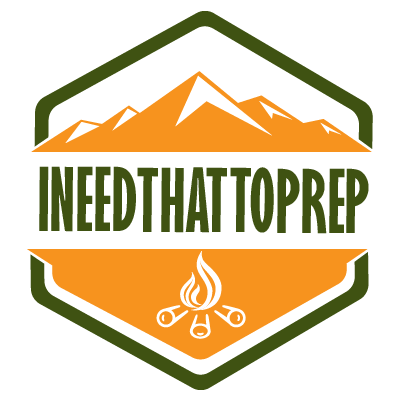Last Updated on April 26, 2023 by Lisa Vargas
So you decided that you want to get involved with prepping. You heard a lot about it and it sounds like a good idea – better to be safe than sorry right? It seems that the trend has been growing and will continue to grow over time.
Prepping for beginners may start to get a bit overwhelming as to where to start your journey. I know that when I started I felt the same way.
What Are You Prepping For?

There honestly is no “right” or “wrong” way to prepare. It really depends on what you are preparing for. As far as what to prepare for, there can be various levels of preparedness on top of what you may believe in what will happen that will play a part.
I’m always trying to explain prepping in the best way that I know how, and I think that not only are there various catastrophes that could happen, but there’s certain levels of those catastrophes as well.
Basic Preparedness
When we talk about prepping, everyone should have some sort of back up plan for small things like if the electricity goes out for a short time in a storm, or if you get a flat tire on the road and you’re stuck in your car for a few hours, or God forbid overnight.
These short, quick, non-life threatening situations happen all of the time, but can become a huge problem if you’re not prepared for these simple things. I always have spare flashlights in my car and around the house for example for power outages. Having frozen foods and a few canned foods always help too. I’ll also have some bottled water just in case I’m caught without water for a night.
Everyone should have at least 72 hours worth of basic emergency supplies for anything might kick us out of our normal routine on a daily basis. This also includes being financially prepared with 6 months worth of savings as well as saving for retirement in general.
Job Loss
I put job loss into its own separate category because it’s unfortunately very timely right now due to Covid-19. Many people have been forced into situations where they’ve had to dip into their savings and retirements to simply pay bills and live day to day.
Job loss may be a temporary setback for some, but if you are a restaurant owner, you may have lost everything. My heart goes out to all of these small business owners who have lost so much in these challenging times.
The reality is that without a job, none of us would be able to survive. That’s why always striving to have emergency food supplies can help during times of financial stress.
Sickness and Injury
Have you ever thought about what would happen if you got really sick, or got injured and couldn’t work? I think a lot of us take our health for granted and forget that if it wasn’t for our physical able body, we wouldn’t be able to live the lives we have today.
Getting sick or injured is highly a more likely scenario to prepare for than a SHTF situation. If you think you’re joining a group of crazy people who are way overboard in their thought process, just think about the possibility of not being able to work.
This notion should put your thoughts into a whole new perspective. This is why prepping is so vital, and much of the country, especially since Covid-19, is waking up to the reality that preppers were right and smart all along and that maybe we should start listening to what they have to say!
Natural Disasters & Recessions
If you’re reading this post, you might live in an area where hurricanes frequent. I personally live in California where earthquakes are more of a threat than anything. I wouldn’t want to live near a hurricane and I’m guessing you wouldn’t want to live near earthquakes either.
The bottom line is whether it’s a hurricane, and earthquake, or a tornado, it’s all going to have some prolonged effect on normalcy if property gets damaged and people get hurt. Are you prepared if you are forced to evacuate your city due to a natural disaster?
You may be on the road for several hours or days to get to your “safe place” so that you can get out of harm’s way. A perfect example is the Creek Fire that started only 45 minutes from my home in Big Creek. It was complete devastation and 50% of the town burned down along with over 300,000 acres of beautiful Sierra Nevada forest land.
Many people were away from home when it happened and came back to burnt homes and rubble. It was extremely sad to watch, but immediately the community stepped in to provide basic toiletries, food, water, and shelter to families who needed it.
These are the times where a vehicles bug out bag or a go home bag would have some in handy. You never know what can happen when you are away from home and it’s always good to have a backup supply just in case.
Complete Chaos and SHTF Situation
Finally we come to the worst possible scenario you could be prepping for which would include EMP attack, Nuclear War, Complete Economic Collapse, or complete societal collapse. This is the final stages right before people start getting crazy and killing each other for food and water.
These SHTF situations can vary, and no one will ever know if or when it will happen, but no matter what it typically means there are no more services available such as doctors, ATMs, dentists, gas, electricity, water, and all of the things that make our society advanced today.
You will by now have been prepping for this and have a plan to either stay in your house by our home as a family, gather in a group and try to survive together (such as in the Walking Dead), or hit the road and get to a remote bug out location where you can live off grid until society is restored.
Any of these scenarios will present you with its own unique challenges, and this is why there are so many survival and prepping resources out there for you to dive into and learn about all of these things.
But the primary reason of this post is to try to get your mind thinking of all of the different scenarios as a beginning prepper so you can start planning accordingly.
Are People Who Prep Crazy?

The act of prepping has been going on since the dawn of mankind. From ancient times, people would can and store food in the summer so that they would have food for the winter time.
Those same people would have to preserve meat as best as they could as well. Without the modern day conveniences of society today, it was a lot harder back then to keep food.
Starting in the early 1900s, war was the most prominent reason for prepping. Even during the Cold War the government promoted the building of bomb shelters, training for children, and personal fallout shelters.
The Church of Latter-day Saints used to promote to their members that they should plan for one year supply of emergency foods. Today, they only promote a three-month supply.
Another event in history was the Great Depression after the 1929 Wall Street collapse. Many survivalists use this as an example to be prepared for financial collapse.
You also would have found back in 1975 that there was a publication called The Survivor, written by Kurt Saxton, that talked much about the old pioneering ways and how they survived in the early days with older technology.
Then another extremely popular book was published by John Pugsley in 1981 called The Alpha Strategy. It was a New York Times Best Sellers for over nine weeks in 1981.
Financial collapse was a big concern and the book talked about hedging against inflation as well as food storage.
It seems that the prepper movement seems to ebb and flow with financial issues in the economy or worries about society in the general public. For example, during the Clinton administration the general public got concerned with the debate around the Federal Assault Weapons Ban that passed in 1994.
Then when Y2K came around, this was another time when everyone thought the end of the world was going to happen. And of course one of the more recent rises in the popularity of the prepper movement was the 9/11 terrorist attacks in New York City.
People began to realize just how vulnerable our country can be and decided that they should start taking precautions for themselves and their families.
Today’s modern survivalist and preppers believe that at some point in their lives, something catastrophic can happen that drives society to spiral out of control and lose all sense of normalcy as we know it, often referred to as TEOTWAWKI (The End Of The World As We Know It).
The obvious threat today is Covid-19 and the pure destruction it has caused on our economy to date. When it first started back in March of 2020, we all got the first taste of what it is like for society to start panicking.
Grocery stores emptied of toilet paper, hand sanitizer, canned goods, and frozen food. This is just a taste of what can happen again if panic sets in once again.
So the answer to the question of whether or not preppers are crazy or not, is an astounding no! As a matter of fact, they are probably some of the smartest people on the planet because they understand how fragile the world is and how quickly it can fall apart, which has been clearly shown to us through the Covid-19 pandemic.
Biggest Mistakes Beginning Preppers Make

Before we get down to the brass tacks of prepping for beginners, I wanted to bring up some important mistakes that beginning preppers easily make when first starting out.
Focusing on buying a bunch of gear instead of learning skills
When most people get started with prepping they get so excited about buying all the gear that they possibly can. Although gear is a part of it, it’s definitely not the biggest part. All of that gear that you buy will do you no good if you don’t know how to use it!
Not having a good survival library
One of the first thing I remember I started doing when I started prepping was to read. I have a ton of books from bushcraft, wilderness first aid, medicinal plants, and urban survival. The reason you need to have a variety of books is you never know what situation you will find yourself in so you need to be prepared for anything and everything!
Not having enough water preps
You will find quickly that storing enough water for you and your family can be a lot more difficult than storing and buying survival food kits. With the freeze-dried foods, you can buy them from Amazon, it comes to your front door, and you throw it in your closet for the next 20 years or until you use it.
With water, it’s much more difficult. You need to learn about all of the little important steps to make sure you water is purified, how to store it, where to store it, and how to rotate it properly. I’ve written several articles on this that you can check out below.
Related Articles: Emergency Water Storage| How To Store Water Long Term| 10 Important Water Storage Questions Answered
not having a big enough variety of foods
One of the easiest thing to do, and what a lot of people do, is run out and start buying a bunch of survival food kits. There’s nothing wrong with that, except that many beginners forget to add variety to their mix of survival food.
When it comes to emergency survival foods, you will learn there are three or four main types of food you will come across:
You can also buy canned food and frozen foods, but those can have a few more downfalls than the ones listed above.
Not having a bug out plan
Having a bug out plan is one of the hardest things probably to do. I’m still working on getting better and better at preparing a bug out plan. Again, you can have all the gear, all of the food and water, all of the tools you need, but if you don’t have a plan once SHTF, you’re still going to be in trouble.
Find some books out there that can teach you about creating a bug out plan. There’s a fantastic one called The Final Survival Plan that really makes you think about planning for a great collapse.
Also take a peek at a book called Bugout Forever. Again, both are great guides to help you start thinking of what it would be like to start a bug out plan. Don’t wait for this!
Not Understanding how to rotate your food storage
When you are learning how to store food and water, you will quickly understand that food rotation comes into play. A lot of food that you buy will have varying shelf lives to them. Because of this, you will actually have to store the food that you eat and replenish it with fresh cans or packages.
For example, if I have stocked up on MRES, that has a 5 year shelf life, after 5 years, you are going to want to replace those with new ones. So guess what? You are going to need to eat it right or else you just wasted a bunch of money on MREs that you never ate!
This happens all of the time with beginning preppers. Don’t let this happen to you!
Not Buying foods you like to eat
Not buying foods you like to eat goes hand in hand with the above topic of not understanding how to rotate your food and water preps. As a beginner prepper, you have to think ahead of time and look down the road.
You will need to first understand how food rotation works, because every food that you have will have some sort of shelf life. So therefore, that means, you are going to have to eat everything you store, or else you just wasted a ton of money!
So the solution to this problem is buy only the foods that you and your family love to eat! For example, I love Kraft macaroni and cheese. I can go to the dollar store and stock up on a ton of Kraft macaroni and cheese knowing at the same time that I may have to eat it down the road in a few years.
If you understand this concept, you begin to understand how prepping is a life-long journey and not just a “set it and forget it” type of hobby.
Forgetting about your pets
I absolutely adore my two little fur babies and would die if something were to happen to them in a SHTF situation. I’ve got emergency dog kits for both of my dogs along with enough food and water for them for 6 months.
Please don’t forget to grab a first aid kit and enough and water preps for your dogs and cats. Think about how confused and scared they will be when chaos ensues. Imagine them wandering the streets looking for food and wondering where there family went. It breaks my heart. Don’t forget about your pets!
Not investing in securing your home
Let’s look at a very practical situation when SHTF. I imagine that the first thing that could happen is Martial Law will be enacted and the police will enforce you to stay in your home. This is one of the more likely scenarios of chaos. The safest place just might be your home!
But most beginning preppers start reading all about bug out bags, bug out vehicles, finding a good bug out location, etc. There’s nothing wrong with this, but what happens if you don’t have the opportunity to get out of town? You will need to be able to safe-guard your house against looters.
That means having weapons, having extra security lighting around your home, putting dead bolts on all of your outer doors, and much more that I won’t discuss here but you get where I’m going with this.
Take the time to sit down and figure out how to fortify your house. This is also why preppers tend to stay quiet because they don’t want people to know they are prepping because guess where the first place all of your neighbors will go when they run out of food during a crisis?! You guessed it! You’re house!
Not testing out your gear before you use it
Not testing out my gear was something I was guilty of when I first started. I was just interested in getting all of gear that I could possibly buy and then I’d get around to learning it later. That was so wrong! But I guess that’s why I enjoy doing the YouTube videos because a lot of times I’m testing out things for the first time. That’s what also makes them pretty funny!
Make sure you go to my YouTube Channel to take a look at some of those videos. Try not to laugh!
Telling everyone that you're a prepper
I know that you’re probably super excited and feel great at making the decision to finally start prepping. You want to tell all of your friends and let them know nothing, like a financial collapse from Covid-19, can get you down. But wait! Don’t do it! Here’s why……
If you start telling everyone that you’re a prepper, guess who everyone who IS NOT a prepper is going to come to when SHTF? Yes! You guessed it! You! I mentioned this above earlier, but try and keep a low profile. The very serious preppers who have been doing this for years and have a lot to lose, don’t talk about it at all.
These hard core preppers may tend to keep to themselves and people might think they are even a little strange. But the reality is that they don’t want people to know what they’re up to, and they typically have a very different view of the world and don’t follow the crowds.
The bottom line is keep your prepping close to home, and don’t let neighbors know if possible.
Forgetting About Sanitation
This final mistake for beginning preppers isn’t fun to talk about, but it’s necessary. I’m talking about fecal waste and urine. Have you ever thought about what happens if you are forced to hole up in your house and you can’t get any water? How are you going to flush the toilets?
We take water and electricity for granted, but when we finally find ourselves without it, it’s going to be a sad, sad day. The best solution to the problem of waste disposal is the Luggable Loo. You can easily get it on Amazon and it’s easy and cheap enough to replace waste bags when you need to.
How To Start Prepping
With that above said, let’s start with our first item on the list of how to begin your journey to surviving the apocalypse which is……….
1. Read Books

One of the easiest and quickest ways to begin your journey into the prepping world is by reading books. The easiest way to do this is to go on Amazon and navigate to the book heading then simply type in the word “survival” and you will get a fantastic list of some of the top books out there. Below are some of the books that we encourage you to check out:
There are a lot more books, of course, out there that deal with prepping and survival. We just wanted to make sure that you know about some of the more reference-type books that you should have on your shelf or that you can take with you.
2. Take Some Survival Courses
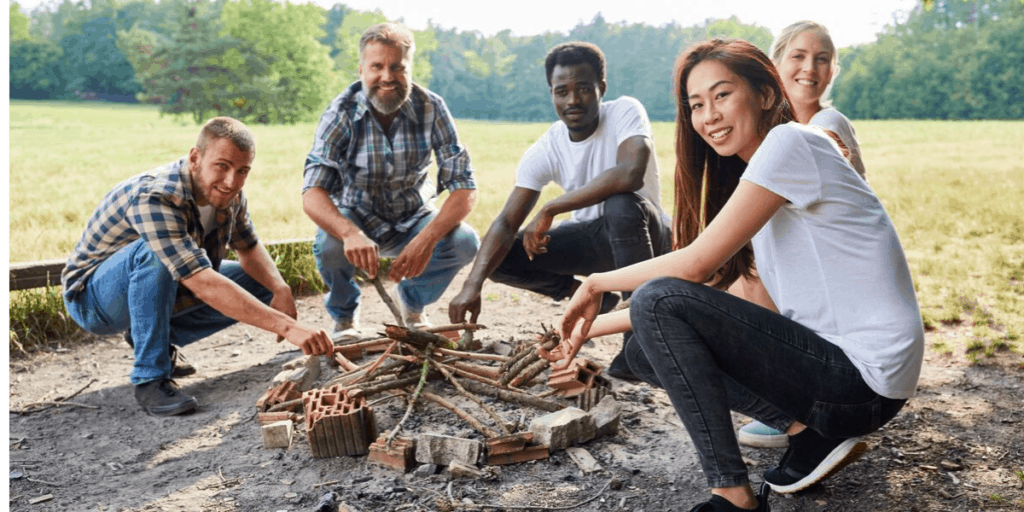
As soon as you start reading some of the survival books, like the ones I mentioned above, there’s something that might hit you….this all sounds good in theory, but how do I actually do this stuff?
One of the best ways to practically apply the knowledge that you learn from reading is to take it out into the wild by taking part in a local (or at least a car drive away) survival class.
I live in California and there are some great companies out there such as California Survival School and Thomas Coyne Survival Schools. Simply Google “survival schools + (your city or state)” and you should find the closest survival schools near you.
If there isn’t one within driving distance, you many consider flying to the school, even though it can get expensive, it might well be worth it. The next one on my list is on December 7th in Santa Cruz with an outfit called Adventure Out if anyone would like to join us!
Increasing your survival skills should be a daily part of your adventure whether that be reading books or magazines, watching TV shows such as Doomsday Preppers, or attending local CPR classes. Every bit will help when the time comes.
3. Food Storage
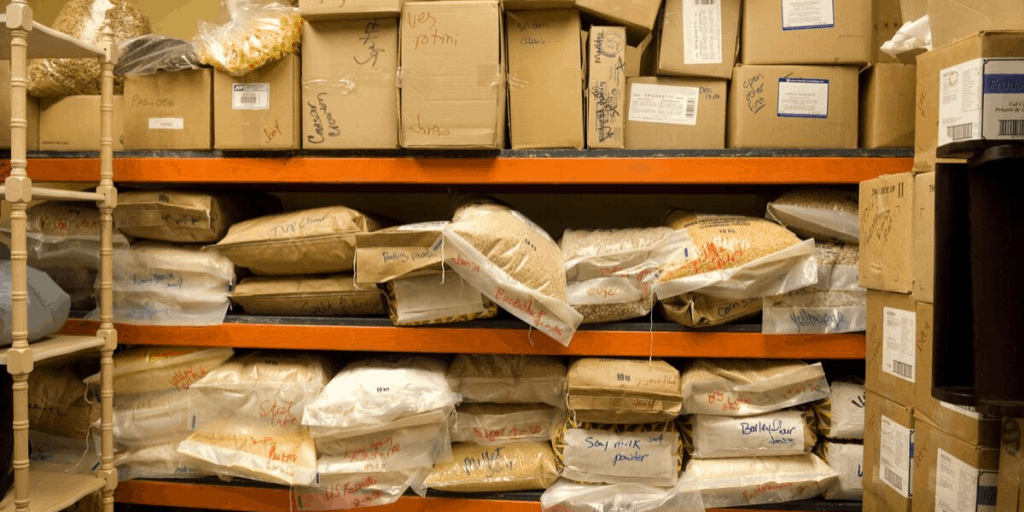
The human body can last approximately three weeks without food, but deprive it of water for three days and you will die.
When you first start prepping, start thinking of the most essential items and work your way down. Food will be one of those essential items to begin stockpiling in your pantry, Tuff Shed, or garage.
There are several variables and considerations when it comes to food storage. This post today is just the tip of the iceberg and is not meant to be an in-depth tutorial on how to properly store food, what type of containers to use, and how long you can store it (you can review more in-depth knowledge under the Food and Water category on this website), but the idea is to get you thinking, as a beginner prepper what lies ahead as you start organizing the tasks in your head.
For example, determine how much food you want to have available for you and your family in case of an emergency. Will you have enough food for two weeks, three months, six months, or one year?
This will all be up to you. Some of the most popular ways to store food quickly is by purchasing emergency food kits. This is a quick and convenient way to store food, as well as the fact that it can last up to 25 years if stored properly.
If you live out in a rural area, maybe you are already accustomed to growing your own food and harvesting your own crops.
Growing your own vegetable garden will be extremely valuable in a survival situation where the only food left is what you have stored, prepped, and planned for. Fresh vegetables can provide the nutrients your body needs to stay strong in a survival situation.
4. Water Collecting, Filtering, and Storage

Water storage might be one of the most neglected pieces of a prepper’s inventory simply because it can be a bit daunting and inconvenient to organize.
But remember, water is vital to staying alive, and you can only live up to three days without it, so make sure you understand how to collect and find water, filter that water if necessary, and then store it.
Every disaster or societal collapse will have its own set of circumstances, so you will want to have a well-rounded water storage plan in place for any situation that arises.
Most preppers want to store water away for that day when all hell breaks loose, or when the electricity goes out and doesn’t come back on for two weeks.
This can be a very real scenarios in a natural disaster such as a large earthquake or a hurricane.
There are several different sizes of emergency water storage containers that can be stored in your garage or a shed, for example. Depending on how much water you want to store and how many people you have in your family, will depend on how large of a container you choose.
Note that it is safe to plan for one gallon of water per day per person for drinking. This isn’t including washing dishes or clothes, or using it for sanitation purposes like washing your face or brushing your teeth.
Note that you will also have to understand how to not only store water, you will need to understand how to purify that water, distill the water, and essentially make it safe for drinking.
You can read more about water safety including purification, chemical treating, distilling, and filtering water which will show you exactly how to do this.
4. Have A Bug Out Plan
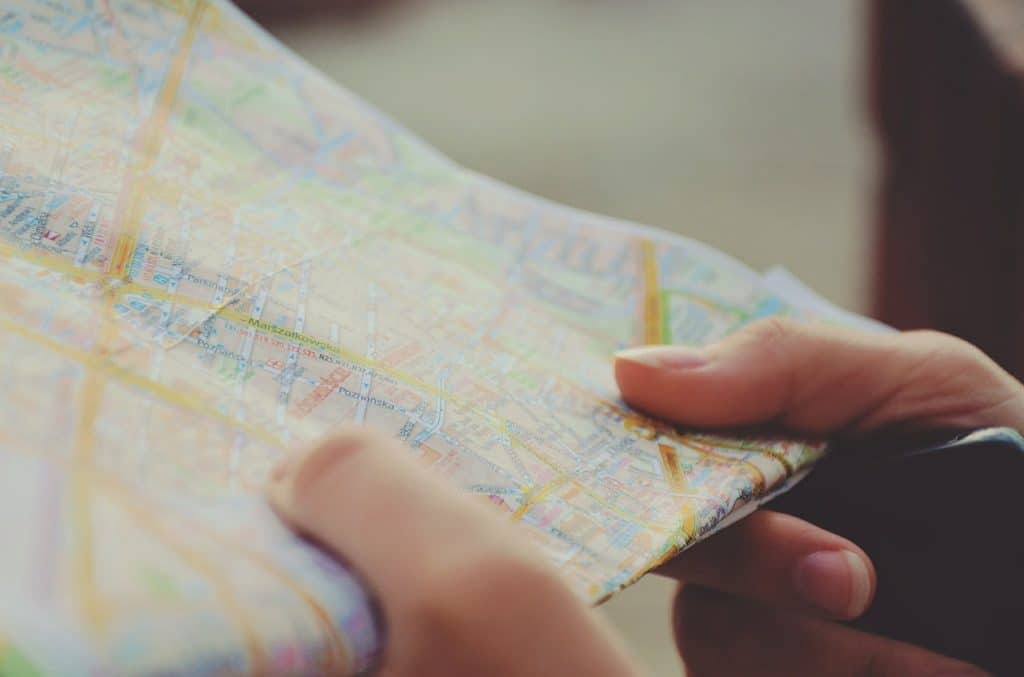
You may have all of the food, equipment, and gear that you can handle, but do you have a bug out plan the second the shtf? It can happen quickly and without warning.
Do you know what route you will take to get out of town fast? Do you know what items you will be taking with you. Do you have a plan to evacuate your pets? Do you have elderly in wheelchairs or someone in need of walking assistance?
You will have to remember that most likely you and everyone else will be trying to escape the area via the same road that you are. The roads will be crowded and the traffic will be most likely in gridlock. Can you and your family throw on your backpacks and hike out of town?
Is it possible to set out on foot? These will all be important aspects to think about as you come up with a bug out plan.
You can easily get some idea by purchasing a bug out bag guide, such as Skilled Survival’s The Ultimate Bug Out Plan. The ebook will teach you about the following things:
- How to find an ideal bug out location
- Mapping your secondary bug out route
- Determine your target bug out bag weight
- Estimate weight of heavy essential items
- Bug out bag research, selection and purchasing guide
- How to pack your bug out bag and get ready to go
- How to change your plan if/when needed
- Getting your family’s “go time” plan in place
I highly recommend picking up this Bug Out Plan ebook because there is no possible way you will know what to expect and how to plan for bugging out without learning how to assess the situation that you could be in.
5. Understand Your Surroundings

How many times have you driven, walked, or biked to the grocery store, for example, and felt like you could do it blindfolded? You know exactly where you are, what road structures are present such as stop signs and stop lights, and about how much time it will take.
This is a mild case of what is referred to as world situational awareness. It essentially means always being alert and aware of what’s around you at any given time and in any given situation.
Situational awareness, if understood and trained properly, becomes 100 times more amplified when you are in unfamiliar or possibly dangerous situations. Your senses need to be heightened and on alert at all times.
You will need to constantly be scanning the landscape with your eyes and swiveling your head for any threats that may be lurking. You can technically train for this, and it is a skill that is pounded into military soldiers frequently and in many cases can save lives simply by observing the behaviors of their surroundings including objects, people, and animals.
If an assailant is coming your way in efforts to steal food, will you stop them in time due to your acute awareness or will they get the best of you?
Some people live in urban environments, some people live in the suburbs, and others live out in the country. Understand your surroundings so that you can be prepared at the drop of a hat, to either get out quickly to your bug out location or know exactly what action to take.
6. Practice Makes Perfect
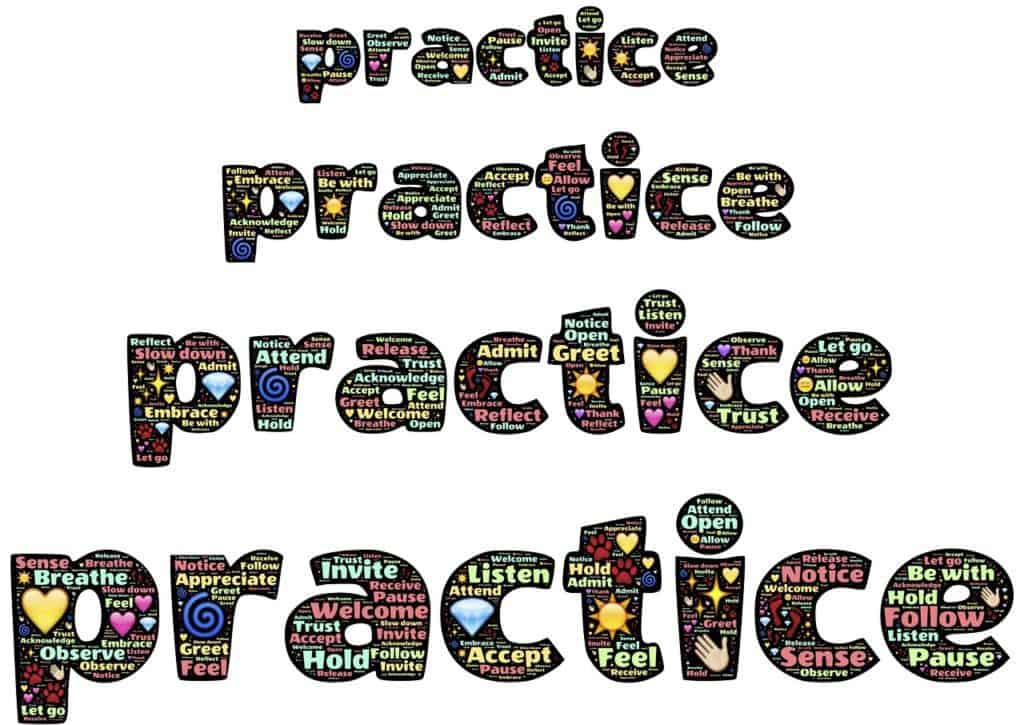
What would happen if an NFL football player didn’t practice every day with his team? Do you think he would play very well when game time finally came around? Probably not.
It’s the same thing with survival and bugging out. Although you will never know exactly how your mental clarity will be in a traumatic situation (we will talk more about that in subsequent posts), you can at least have practiced drills on how to evacuate the area as quick as possible.
Here’s a short, brief idea of some basic tips on practicing your bug out drills:
- Have at least two different escape routes out of town.
- Make sure your emergency communication systems work such as walkie-talkies and emergency hand-crank radios.
- Have a family meeting point – your children could be at school and you could be at work.
- Determine who is responsible for what tasks ahead of time.
- Make sure you know every inch of your bug out route.
- If you practice bugging out on foot determine what tools/gear you will need.
- Run drills during different parts of the day and during different weather.
Keep in mind the above list is a general list of basic ideas that you can get started with. Keep in mind that there different situations to prepare for such as natural disasters, a violent gang, fire drills, and so on.
Many preppers have a bug out plan so that they know exactly where to meet and what to do in case the shtf. But how good does that work if you don’t practice it?
Do you think that on the actual day the world turns upside down that your family is going to perform very well? Again, probably not.
It’s important to practice bug out drills so that you can get better and better at getting out quick. Plan what each family member will grab as they rush out the door, what vehicle you will all meet in, where you will be going exactly.
That is why practicing your bug out plan and getting it perfect is vital and could possibly even save your life.
7. Take Shooting Classes
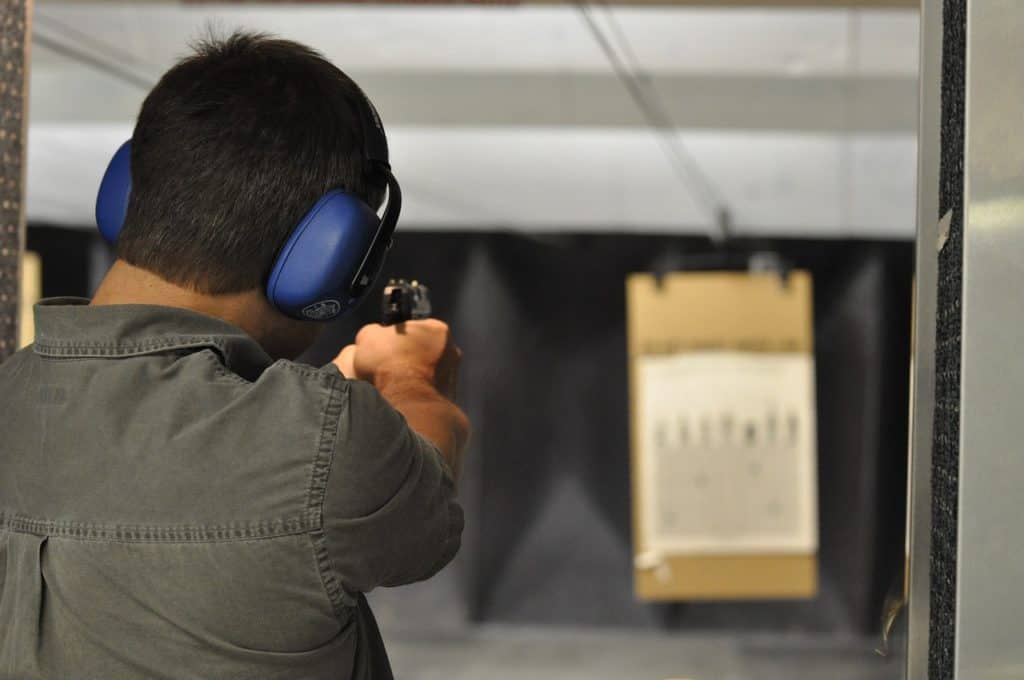
I was pretty lucky growing up on a cattle ranch and had the opportunity to shoot guns all of the time on our property. I remember the skeet-shooting parties my parents used to have when my brother and I were really young.
We were always around guns and learned to respect them and use them at an early age. Dove hunting was one of my favorite past times in the Fall, and to this day you can still find me out at my parent’s ranch crouching next to a large pomegranate tree waiting for a dove to fly by.
Naturally, with shotguns and rifles around the ranch, handguns became somewhat of a fun weapon to do target practice with out in the middle of the pasture.
My dad would set up targets out in the middle of the field (of course we would make sure all the cattle were on the other side of the fence so that we would have no chance of hitting them by accident! Yikes!) and we would stand on the front lawn trying trying to hit the metal targets.
Even though it was always fun to shoot semi-automatic handguns, I was well aware that my father always had one stashed away in his nightstand as a kid just in case.
My point is, even if you didn’t grow up on a ranch, you can still go down to the local shooting range and grab a shotgun and get to practicing. You can also go to an indoor shooting range where you can practice with handguns.
After all, what good is having a gun if you don’t know how t use it? And that my friend, is one of the biggest mistakes that I read about all of the time. Guns can give people a false sense of security. Don’t let it happen to you.
8. Take Up A Knife Throwing Class
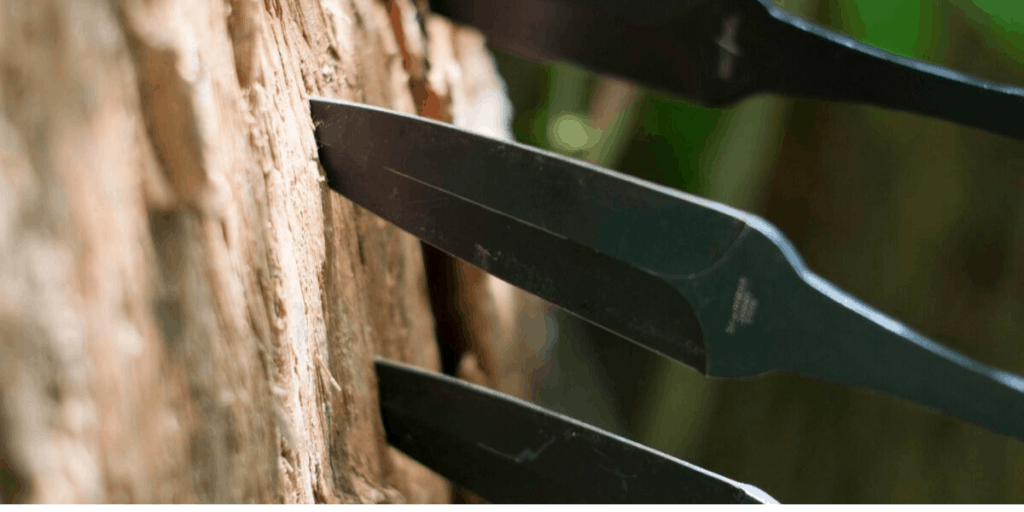
I’ll have to admit, I am really excited about taking knife throwing. It’s the next thing on my list for my own personal prepping journey. I’ve used knives primarily for gutting my trout after a good fishing day and then also cleaning the doves my brother and I shot after a good evening of hunting.
Knife throwing is an entirely new ball of wax and can be an extremely handy skill to have for self defense. All you need to do is Google “knife throwing classes (your city)” and I’m sure you will find something near you. Have fun with it, and know that it may just save your life someday.
9. Take An Ax Throwing Class
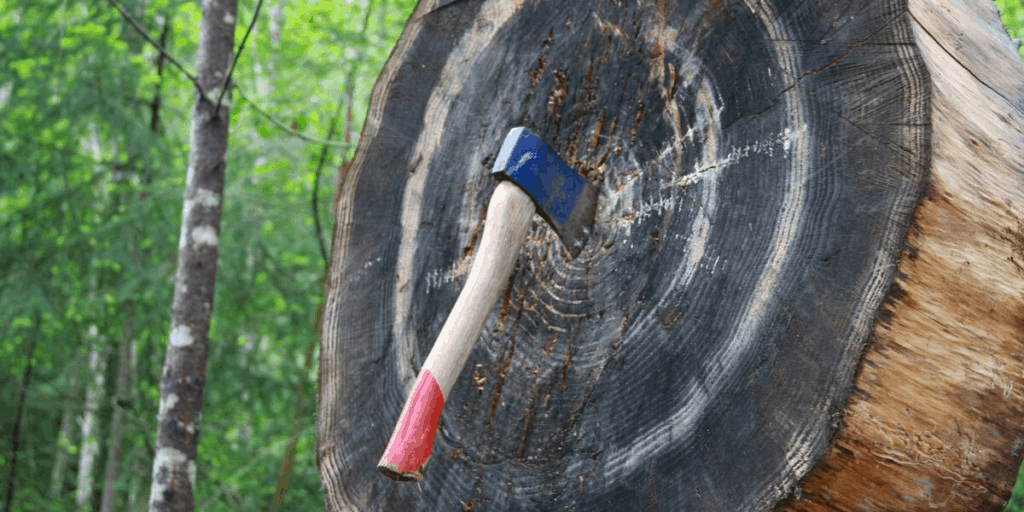
Ax throwing is a skill that seems to have gotten popular in the last few years. It probably wouldn’t be my first choice for defense, but if I was outdoors chopping wood for a fire and a gang of bandits were fast approaching, I would definitely feel a little more confident knowing I could take one out quickly.
Ax throwing has been around since the middle ages and it primarily pursued as a favorite hobby or pastime to enjoy now.
The National Ax Throwing Federation (NATF) was formed in 2016 and overseas the many ax throwing competitions that take place around the country each year.
Much of the competitions go off without a hitch and it’s all a bunch of fun and games that people gather to show off their skills.
But at one point in history, people used these axes as lethal weapons to fight against their opponent from a distance and drop their opponents before they got a chance to advance.
In a survival situation, any weapon skill that you have can prove valuable at any given time. Plus, knowing how to throw and ax would deserve a few bragging rights with your friends.
10. Take A Self Defense/Martial Arts Class
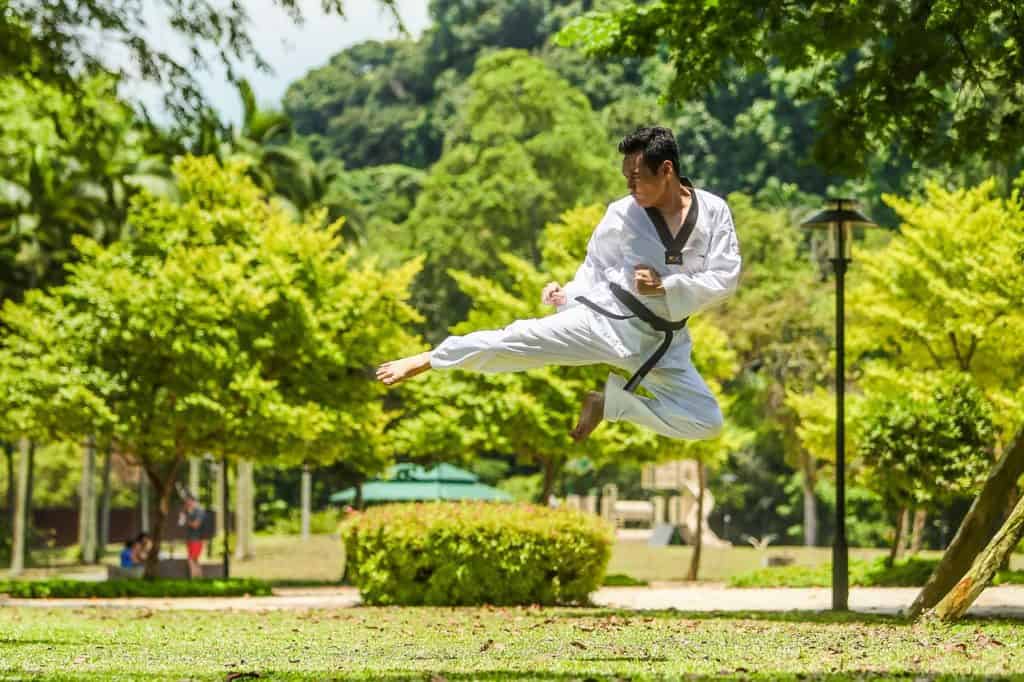
I spent 10 years of my life as a martial artist. I studied Matsubayashi Shorin-Ryu under Sensei Reza Pouraghabagher in San Luis Obispo, CA. Shorin-Ryu is a hard-style of Karate which originated in Okinawa.
When I received my black belt I began teaching, and it really opened my eyes to the amazing weapon that I had, and those were my hands.
Learning a martial art can help you not only in a hand-to-hand combat situation, it can also help you with your mental clarity and put you in a zen-like state.
Becoming a martial artist is not just about fighting and competitions. It’s about every movement, every motion, every microsecond, of every interaction.
There will always be much debate about the best martial art to learn for surviving in a societal collapse situation, and you can read more about the best martial arts for survival throughout the internet.
11. Start Gathering Survival Tools and Gear
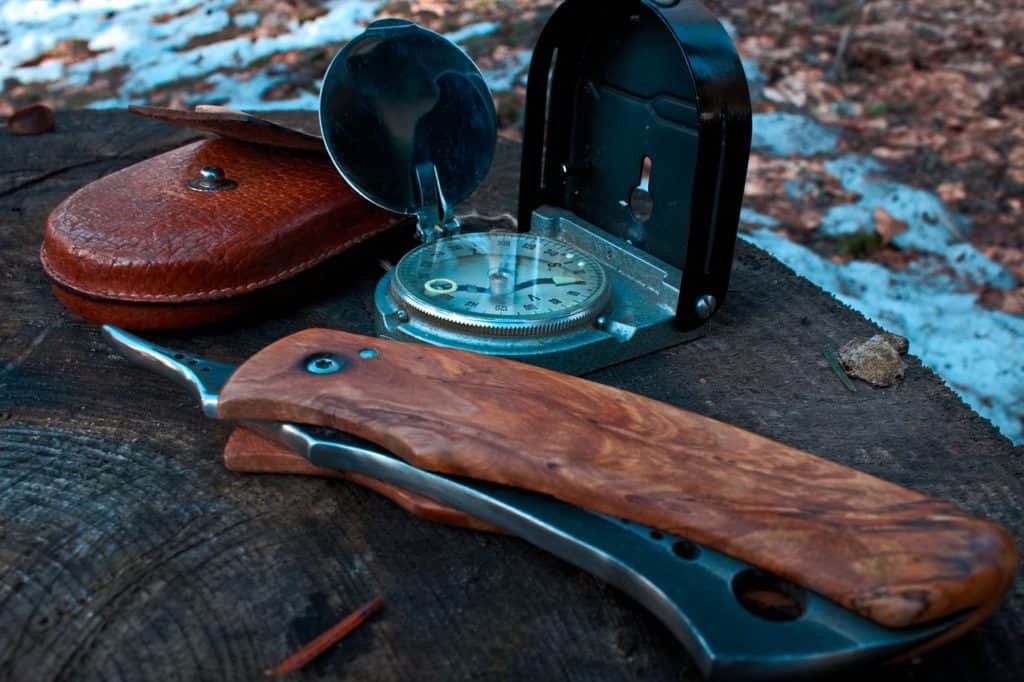
You aren’t going to get far without the proper tools. In a post-apocalyptic world, you are going to most likely be doing more manual labor and foraging since you won’t have the conveniences of modern day technology anymore.
It’s crucial when you begin your prepping journey that you decide what types of tools you are going to deem most necessary to you and your family to keep safe and for utility purposes.
Some of that will depend on where your bug out location is. For example, if you live close to the mountains like me, you are going to want some good wilderness survival gear appropriate for your environment.
If you don’t have a bug out location your tools might be a little more lighter and portable to go out on the road with, but there are tools that every survivalist must have no matter where you are headed to.
Determining the right gear on your prepping journey is just a matter of research of time. You will notice that as you begin to understand the basics of survival, there are certain essentials you will want have with you at all times.
Feel free to check out the article titled Doomsday Prepper List to find a list of essential items you will need for survival during a grid down situation.
Related Articles: Prepper Supply List: A Comprehensive List Of What Every Prepper Should Own
12. Put Together A Bug Out Bag
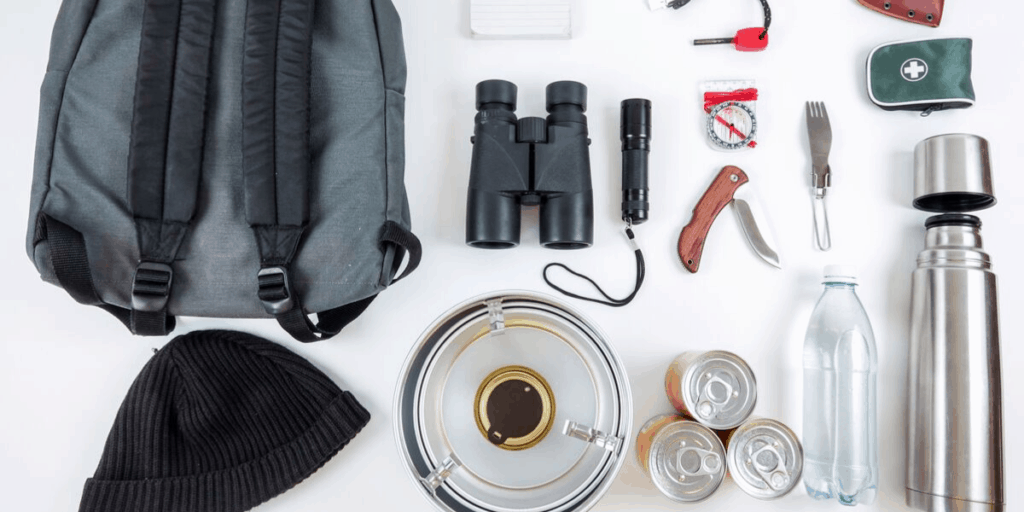
A bug out bag is the grab-and-go bag that is either already packed in your bug-out vehicle with essential supplies, or it’s sitting next to your front door so that you can quickly grab it, and your family and head for the hills per say.
What you have in this bag is very important and you will read lots of variations of articles and ideas on what to have in a bug out bag.
Again, don’t get overwhelmed by the differences in opinion out there, just feel comfortable knowing that most of the prepping articles out there about what bug out bag items to have are pretty close, give or take a few items.
13. Put Together A Emergency Kit
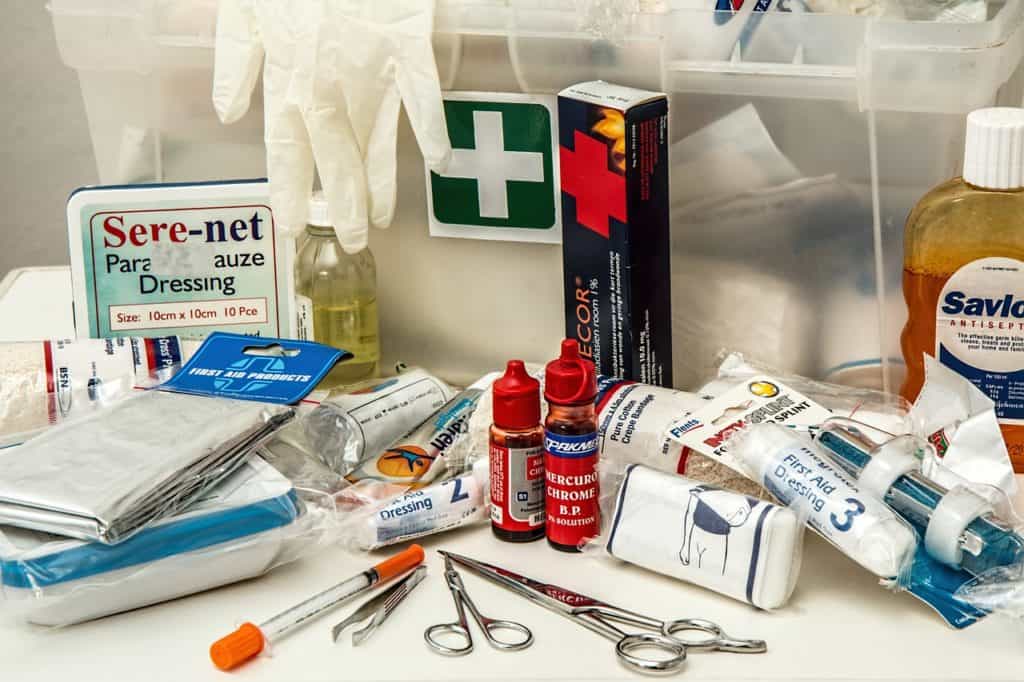
I don’t know about you lately, but I’ve notice more and more commercials on TV about having a 72 hour emergency medical kit on hand as a precaution.
You can either put together your own homemade emergency medical kits or you can buy one online from somewhere like Amazon. There is a plethora of choices out there, but make sure to read our article entitled “10 Best Survival First Aid Kits.”
14. Take A CPR Class
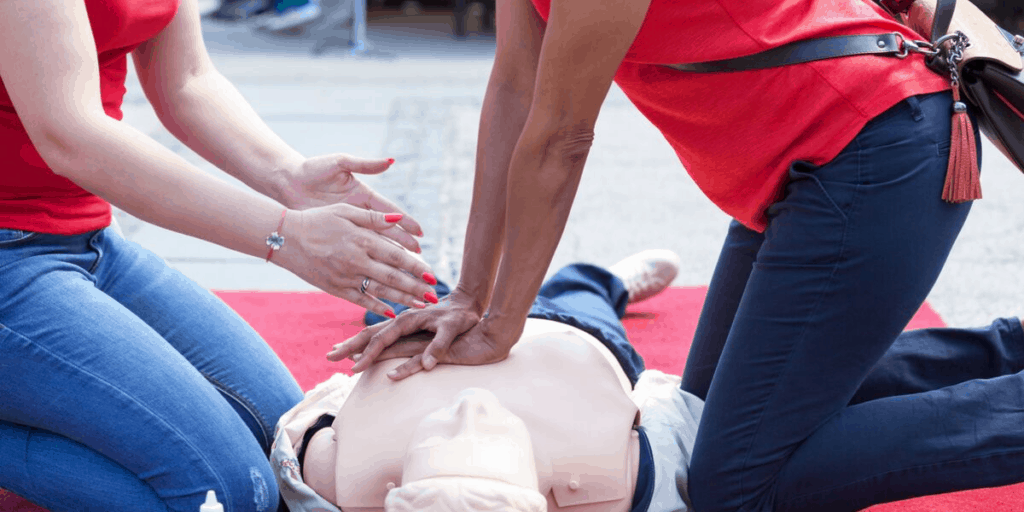
CPR is one of those life-saving actions that everyone knows they should probably have some training in but never get around to doing it.
You see it happening all of the time in Hollywood movies involving lifeguards or even big box-office hits. Seeing these scenes of CPR being played out over and over again drill it home to us the importance of knowing how to to this if the time arises.
The best place to is searching online for local CPR class training in your city. It shouldn’t be too hard because it is such an important skill to have, many safety schools offer it as an ongoing course to their regular schedules.
15. Learn Your Medicinal Plants

The best way to learn about medicinal plants is to pick up a book and start reading. The one that I’ve chosen to carry is The Lost book Of Remedies.
It’s an amazing book and goes through just about every plant, tree, and shrub there is in North America. There’s a short video here that you can see a little more about it.
I also a mentioned a few medicinal books up above under the first “Book” category that we covered.
16. Take An Archery or Bow Hunting Class

Archery and bow hunting, like ax throwing, has been around a very long time. When you think of archery you probably think about Mid-Evil times or possibly, like me, you think of the movie The Samurai with Tom Cruise when the Samurai are practicing archery from the backs of their horses.
Bow hunting is a means to an end. And that end is to feed your family and prevent you from starving to death. This can be a key component for hunting if you find yourself surviving in the wilderness for any length of time.
There are terms that bow hunters will use and there are terms that archers will use. You can learn about them here. No matter what you prefer, bow hunting is another valuable skill to have after the collapse of society.
17. Learn How to Navigate With A Compass
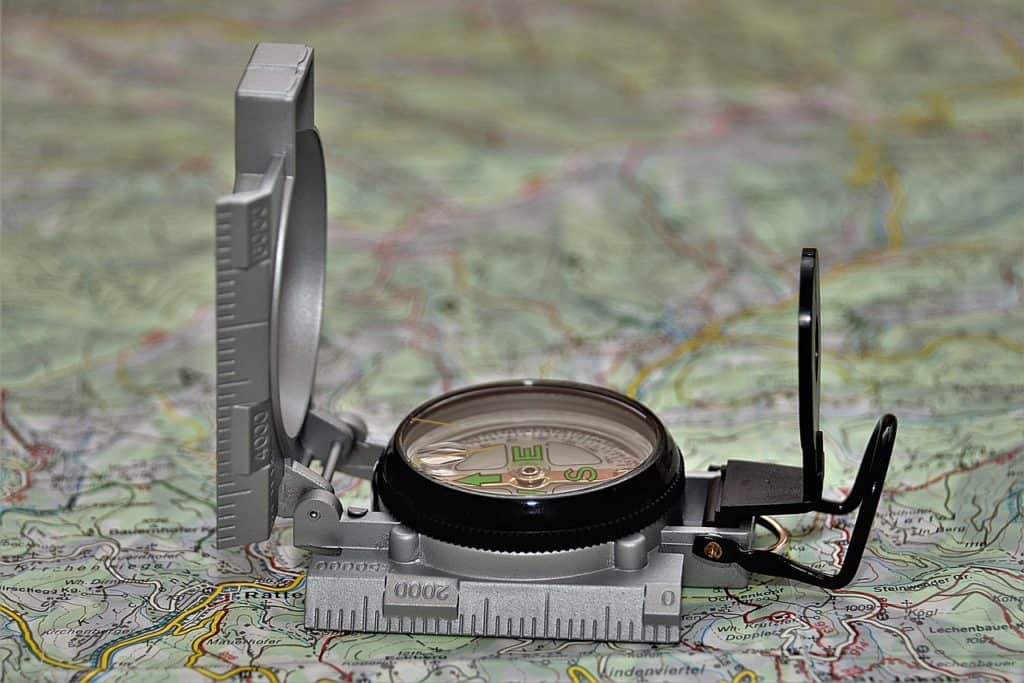
If you are forced out of your environment suddenly you might find yourself wandering for awhile before you find a location to hunker down.
Knowing how to navigate your way around using a compass can be a valuable skill to have in your back pocket. As a beginning prepper, this can seem like a difficult skill to learn, but you can do it by joining a local NASAR chapter if you were really serious.
One of the primary skills that the National Association Of Search And Rescue (N.A.S.A.R.) teaches you is how to navigate with a compass, take bearings, and read topographic maps so you can locate a missing person.
There are all different types of compasses, so make sure to get familiar with them and then learn how to use them.
Since compass navigation can be a complex skill to learn, I won’t be writing about it here today, but you will see it come up in subsequent posts on this blog so stay tuned by signing up for our newsletter to get notified when new posts come out.
18. Learn How To Grow Your Own Food
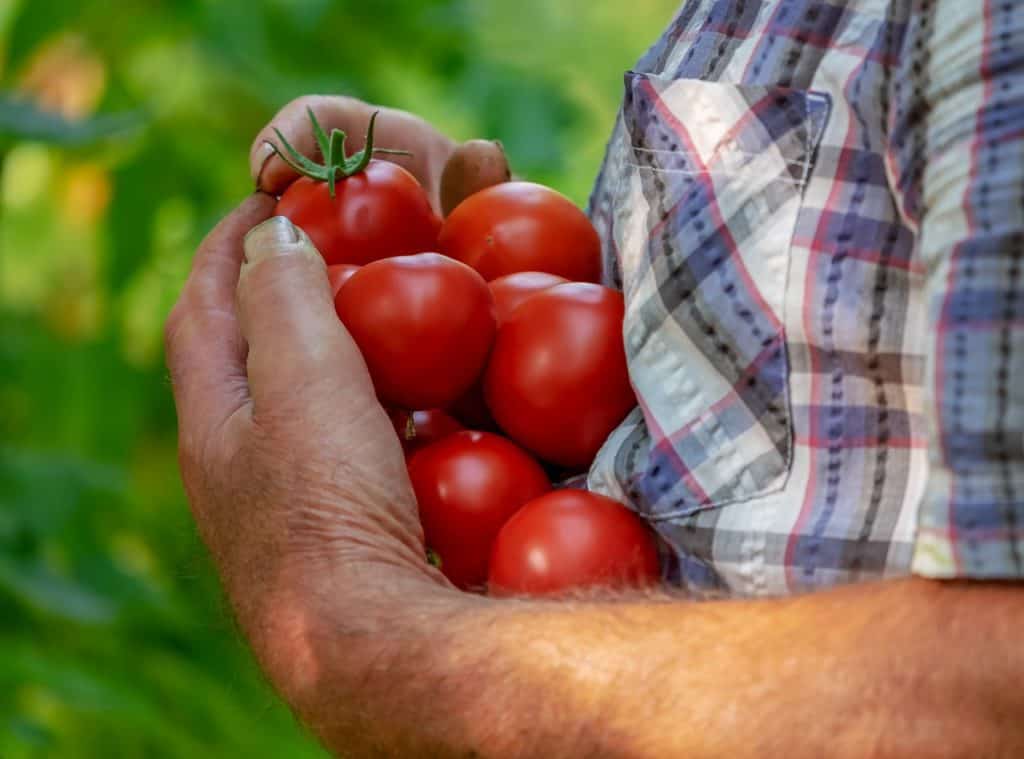
Learning to grow your own food, to me, must be one of the most self-sustaining skills you can learn. One popular method is called aquaponics. It’s almost a surefire way to avoid a food crisis.
If you constantly have an abundant supply of natural, organic, nutritious foods to fuel your body, your immune system will stay strong and you can maintain good health while society gets back to normal.
If you live in urban areas, you won’t have access to as much land as someone who lives in rural areas. This is going to play a large part in what you grow in your backyard.
You will also want to take into consideration how many mouths you have to feed. Also don’t forget that growing your own food during societal collapse means you have to use water to grow those plants. Did you plan for this?
As you can see, there are a lot of variables when it comes to growing food. The best thing to do if you’ve never grown your own garden is to simply start reading and learning by trial and error.
One of my favorite books that my parents used to have on the book shelf at all times was the good old fashioned Farmer’s Almanac. The Farmer’s Almanac has a fantastic internet page on their website on how to start your own garden.
You also might want to consider investing in an emergency survival seed vault that has all of the nutrient-rich plants and herbs that would be advisable to grow in a survival situation.
You are probably wondering, “But why can’t I just live off of those emergency freeze-dried kits that I’m stocking up on?” The answer is that you can probably survive off of those “foods” for a little while, but it will wreak havoc on your digestive system.
You ideally should have a mixture of fresh fruit and vegetables and then the dehydrated foods can act as fillers.
19. Fortify Your Castle
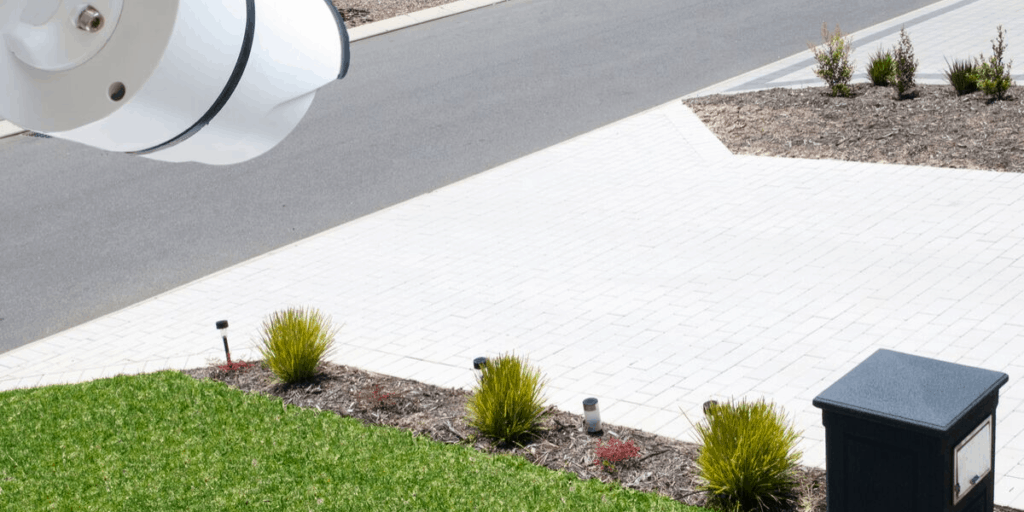
If the grid goes down, most people in urban environments are more than likely going to hunker down and stay put until normalcy comes back.
The problem with this strategy is you can’t possibly know how long that can be. If the electricity is out, you are in for big trouble unless you have prepared for it.
There will be no refrigeration to store perishables, the toilets won’t work, there will be no electricity, and soon no communication due to cell phone batteries dying.
If you find yourself in this situation, hopefully you have had the chance to fortify your home to repel intruders. One of the most important things you can do is make sure your home is as safe as possible from intruders.
What good is all of this preparation if the your town goes into chaos and your neighbors or gangs try and come to steal your food? Looting is one of the most common crimes that will start happening as soon as food starts running out.
Not only will looters finish off the grocery store shelves, they will start looking to their neighbors when all the store shelves are empty.
Here are some things to consider when fortifying your home to keep it safe from potential robbers during survival.
- Know the perimeter of your home – Make sure you are familiar with the weak points around your house such as wobbly fence posts, dark corners, weak door hinges, and large shrubs impairing your view.
- Store anything expensive in the garage out of site – Having expensive items like fancy grills, lawn mowers, tools, and firewood invites looters into your backyard. Make sure you store those items in the garage that has windows covered with curtains or in a heavily locked shed.
- Install motion sensor lighting– Motion sensor lighting for the backyard is one of my favorite protection systems around the house. Not only does it alert you to something moving outside in the yard, it also can scare off the burglar and stop him/her from approaching any further.
- Install deadbolts on all doors – This is a very simple procedure to do to help keep your doors more secure. You can simply go down to Home Depot and grab some specific parts and install it yourself or call your local handyman and get them to do it for you.
- Install a security door – Security doors are another easy, yet highly effective way to stop intruders. With that said, don’t get a cheap security door, whatever you do. Make sure to get a door that made with steel and extra long bolts that secure the door to the door frame.
- Put door stoppers in all of your window frames – Door stoppers are a quick and easy, DIY trick that can easily stop intruders from sliding open your windows. Go to Home Depot or any hardware store and get a couple of wooden rods and cut them to fit the length that is just short of the window sill. Insert the wooden rods and viola! You’re finished. Of course it won’t stop them from breaking the glass, but if they were forced to break the glass, you would have a better chance of hearing the glass break.
- Install an alarm system – Installing an alarm system in your home is one of the obvious home security methods. The only drawback to this method is that in a societal collapse, there will be no one to respond to the alarm that goes off and alerts your alarm system company. Also, many of these alarms are powered by electricity, so if the grid is down, the alarm system will only be backed up by a battery that lasts for a short amount of time. The bottom line…don’t put too much stock in a home security alarm system.
Conclusion
Hopefully this prepping for beginners list has helped you get a better grasp on things to start planning for and what to expect on your journey.
It can be overwhelming at first but just remember to take each section of some of these suggestions in chunks.
You don’t have to do it all at one time. This is a marathon, not a sprint. Slow and steady wins the race.
